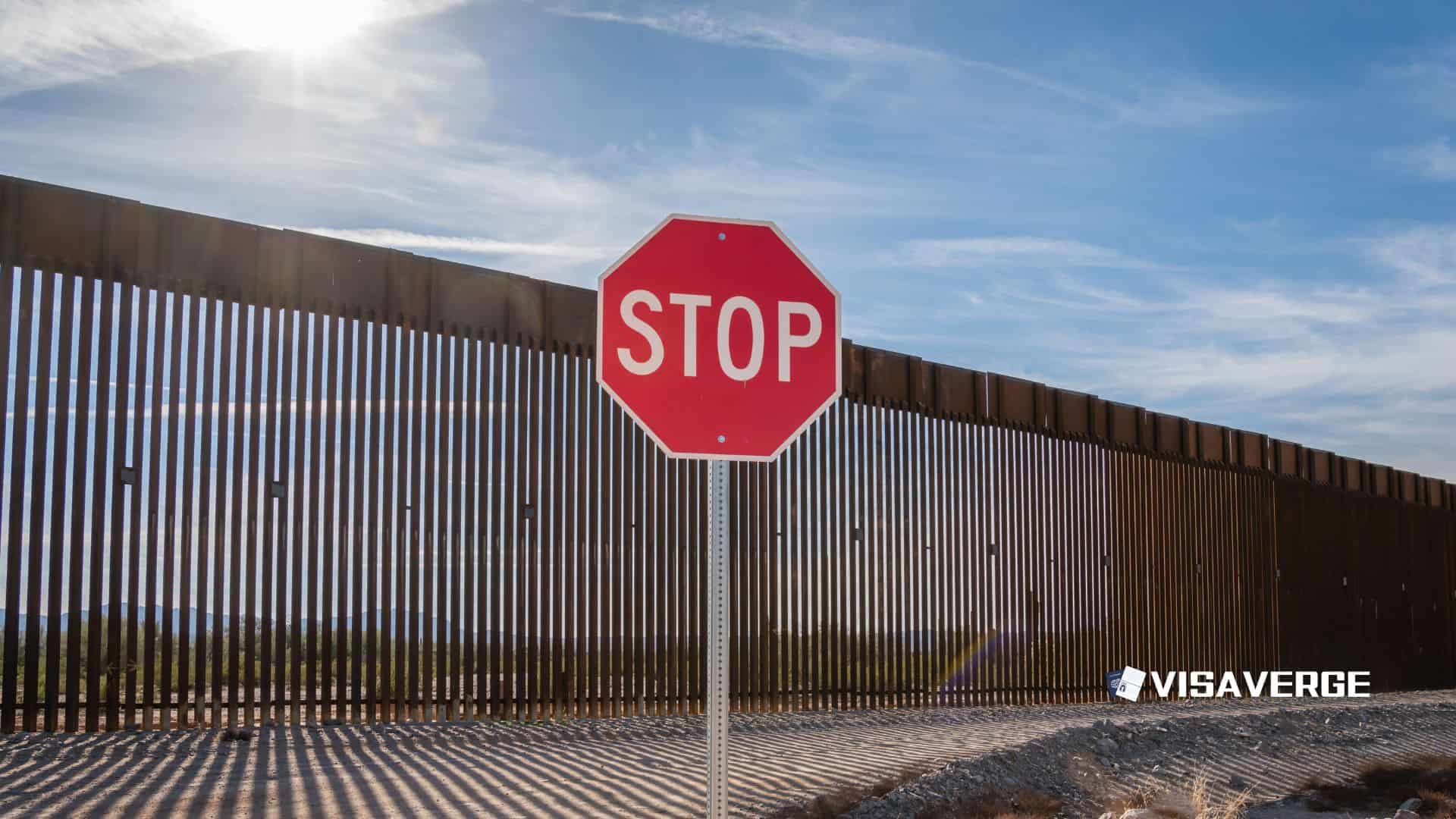(MINNEAPOLIS–ST. PAUL) Federal officials announced multiple arrests and enforcement actions tied to an intensive immigration fraud sweep in the Twin Cities, confirming that Operation Twin Shield ran from September 19–28, 2025 and targeted more than 1,000 cases flagged for concerns.
Led by U.S. Citizenship and Immigration Services (USCIS) with support from U.S. Immigration and Customs Enforcement (ICE) and the Federal Bureau of Investigation (FBI), officers conducted over 900 site visits and interviews across Minneapolis–St. Paul and surrounding communities. Evidence of fraud, non-compliance, or public safety/national security concerns was found in 275 cases, and as of September 30, officials had issued 42 Notices to Appear (NTAs) or made referrals to ICE, with 4 noncitizens apprehended during the operation. Authorities say those figures will rise as investigations continue and case work matures.

USCIS Director Joseph B. Edlow framed the initiative in sweeping terms:
“USCIS is declaring an all-out war on immigration fraud. We will relentlessly pursue everyone involved in undermining the integrity of our immigration system and laws. With help from ICE and the FBI, USCIS’ Operation Twin Shield was a tremendous success—hundreds of bad actors will be held accountable.”
Federal officials called the Minneapolis–St. Paul sweep a first-of-its-kind deployment of USCIS resources in a single geographic area and signaled it could become a template for future operations in other cities.
How the operation unfolded
Officials said USCIS officers, working with ICE and the FBI, identified cases with indicators of ineligibility or deception, then fanned out for unannounced checks, in-person questioning, and document reviews.
The focus covered a broad range of case types:
– Marriage-based filings
– Employment claims
– Humanitarian sponsorships
– Cases with public safety red flags
Agencies emphasized the stated aim was to protect the integrity of the system, not to disrupt lawful applicants. Still, the commitment of manpower and coordination marks a notable shift in enforcement posture in the Twin Cities.
Key findings and examples
Investigators reported multiple common forms of immigration fraud, including:
- Marriage fraud: Several instances were identified. One case involved a noncitizen who entered a sham marriage and exploited an elderly U.S. citizen, raising concerns about elder abuse and financial harm.
- False documents: An applicant admitted buying a fake death certificate from Kenya for $100 to falsely claim a prior marriage had ended; investigators determined the spouse was alive and living in Minneapolis.
- Visa overstays and fraudulent employment claims.
- National security risks: Individuals with alleged links to suspected terrorists were identified.
- Humanitarian program abuse: Patterns in the Uniting for Ukraine program showed some sponsors filed for unusually high numbers of beneficiaries. While officials did not allege wrongdoing by most sponsors, they said the pattern warranted closer review to prevent exploitation.
Policy context and next steps
Federal officials pointed to Executive Order 14161, which directs agencies to protect the United States from foreign terrorists and public safety threats, as the policy backbone for Operation Twin Shield.
They described the Twin Cities effort as the first time USCIS has dedicated resources at this scale in one region, and a potential model for nationwide crackdowns. The Department of Justice, separately, filed a lawsuit against Minnesota and local jurisdictions over sanctuary policies, arguing those measures interfere with federal immigration enforcement.
Political and public reaction
- The enforcement tone reflects a shift under President Trump, according to officials. USCIS officers are now empowered to pursue fraud more aggressively and conduct deeper vetting.
- Supporters argue this approach protects the integrity of the system and public safety.
- Critics warn large-scale sweeps may create fear among lawful applicants and chill cooperation with authorities.
Federal officials counter that they are targeting fraud indicators, not conducting blanket actions against communities.
Expected follow-on activity
Analysis by VisaVerge.com suggests concentrated field operations like Operation Twin Shield typically produce additional activity:
1. More NTAs (the charging document that starts removal proceedings).
2. Additional ICE referrals.
3. Increased adverse adjudications—denials or revocations based on verified fraud or ineligibility.
Officials expect the numbers in Minneapolis–St. Paul to climb as interviews are transcribed, evidence cataloged, and supervisory reviews completed.
What residents, employers, and sponsors should expect
The practical message: expect closer scrutiny.
- Officers may conduct home or workplace checks when records suggest inconsistencies.
- Employers who sponsor workers could see more verification calls and document requests.
- Humanitarian sponsors may be asked to explain high-volume filings or confirm ongoing support for beneficiaries.
- USCIS said it will continue scheduling in-person interviews when facts are unclear or background checks raise concerns.
Practical preparation tips
Keeping organized records can reduce doubts that trigger deeper probes:
- Couples with marriage-based cases:
- Original marriage certificates
- Joint leases
- Shared bank statements
- Proof of shared life (photos, correspondence, bills)
- Workers and employers:
- Accurate job descriptions
- Wage records
- Evidence that the job and worker qualifications match what was filed
- Humanitarian sponsors:
- Copies of support commitments
- Communications showing they remain engaged with beneficiaries
These records don’t guarantee approval, but they can help avoid additional scrutiny.
Legal consequences and guidance
Officials stressed that those who receive an NTA will get a date and place to appear in immigration court. Many people seek legal advice at that point to understand options.
A referral to ICE can lead to further questioning or custody if public safety risks are present. In the limited arrests reported during the operation, authorities said the focus was on individuals considered enforcement priorities.
For formal updates, USCIS directed the public to its Newsroom for ongoing announcements and materials related to Twin Cities actions and future efforts. Readers can check the agency’s official page for statements, data summaries, and any posted briefings at the USCIS Newsroom.
Scaling and outlook
Officials indicated Minneapolis–St. Paul is not a one-off: similar Operation Twin Shield deployments will be launched in other cities, with details to come. The Twin Cities were chosen based on case trends, field office capacity, and coordination with partner agencies.
As the program expands, communities should expect:
– Targeted reviews
– Unannounced checks
– Swift referrals when fraud or security concerns arise
While much attention centers on the headline numbers—1,000+ cases reviewed, 900+ visits, 275 with findings, 42 NTAs or ICE referrals, 4 arrests—the human stakes sit underneath.
For people who qualify, a fair process and timely decisions mean stability at home and work. For those who commit fraud, consequences now come faster and with more certainty.
As investigations continue, Minneapolis–St. Paul will serve as a test bed for how far USCIS can stretch field capacity to deter immigration fraud while keeping legitimate cases moving. The coming months will show whether the Twin Cities model can scale and whether it delivers both enforcement results and public confidence without burdening lawful applicants.
For now, federal agencies say they are committed to the same formula that made Operation Twin Shield one of the most aggressive fraud sweeps the Twin Cities have seen: targeted leads, on-the-ground checks, and tighter coordination.
This Article in a Nutshell
Operation Twin Shield, conducted Sept. 19–28, 2025, was a USCIS-led, multiagency fraud sweep across Minneapolis–St. Paul reviewing over 1,000 flagged cases. With ICE and FBI support, officials completed more than 900 site visits and interviews, finding evidence of fraud, ineligibility, or safety concerns in 275 cases. By Sept. 30, authorities had issued 42 Notices to Appear or made ICE referrals and apprehended four noncitizens; officials expect those numbers to grow as investigations mature. The operation targeted marriage fraud, fake documents, visa overstays, fraudulent employment claims, and potential national security risks, including questionable patterns in the Uniting for Ukraine program. Federal leaders framed the effort as a first-of-its-kind deployment of USCIS resources in one region and a potential template for nationwide operations. Officials advised residents, employers, and sponsors to keep organized records, expect increased scrutiny and in-person interviews, and seek legal counsel if contacted. The sweep also sits within a political and legal context, including Executive Order 14161 and DOJ litigation against state and local sanctuary policies.













